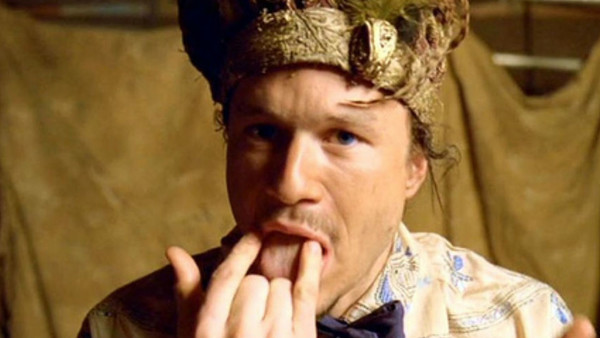The Dark Truth Behind Heath Ledger's Joker
1. The End

By the end of 2007, Ledger had moved on from the production, though Nolan's team were still filming the Hong Kong sequence as late as November 2007. For Ledger, the next step was making Terry Gilliam's fantastical The Imaginarium Of Doctor Parnassus, an oddity and a strange film to make following The Dark Knight, but another big opportunity all the same.
Filming started in December 2007, but Ledger remained exhausted. His dialect coach on the film, Gary Grennell described him as “exhausted, emotionally and physically” and said he had been battling a lingering pneumonia-type illness, which would ultimately send him back to his New York City apartment. It was there that he died, thanks to a fatal mixture of prescription drugs
Grennell painted a picture of Ledger on-set that didn't quite fit with the happy professional experience he painted.
“He missed his girl (ex-girlfriend Michelle Williams) he missed his family, he missed his little girl — he desperately wanted to see her and hold her and play with her. He was desperately unhappy, desperately sad.”
He also mused that the actor was aware of what he was struggling with, and knew that he was spiraling in the weeks before his death:
“He said, ‘I got to stop, it’s not helping, I’m not well, it’s making me feel more upset. It wasn’t helping with the relationship issues, it wasn’t helping with missing his kid, it wasn’t helping his sleeping — and he knew that."
Grennell wasn't the only one to express concern. Ledger's Four Feathers co-star Djimon Hounsou told the film-makers for Ledger's post-humous documentary I Am Heath Ledger that he'd run into him when he was filming The Dark Knight and remarked that the change he saw in him concerned him.
There was still a contradiction though. His sister Kate told PEOPLE in 2017 that Ledger was a "happy boy" even though she knew he was struggling with illness. She warned him to be careful about mixing medication, which he shrugged off. Even their final conversation was upbeat, in her own words:
“I was cooking dinner … and we were laughing. Then he said, ‘I’ve got to go, and I’ll call you at 8:30 in the morning’ and that was it. That was our last conversation. I said ‘Okay, I love you.’ And that was it. It’s heartbreaking.”
Ledger's death completely changed the trajectory of The Dark Knight. It would probably have still made a huge sum of money at the box office, but it wouldn't have been as defined by his performance. It perhaps wouldn't have won an Oscar. How much the narrative of his tragic death played into that remains to be seen, but it's definitely part of the conversation.
Later, Christopher Nolan remarked on his experience completing the film in the wake of his star's death:
"It was tremendously emotional, right when he passed, having to go back in and look at him every day [during editing]. But the truth is, I feel very lucky to have something productive to do, to have a performance that he was very, very proud of, and that he had entrusted to me to finish."
The director presented Ledger's performance as he'd filmed it, avoiding digital effects in any way. What you see in that final film is the product of Ledger's commitment to preparing, his method approach and everything that exhausted him and set his mind on edge. Even now, it's difficult to watch it with the nagging suspicion that it played some part in the actor's untimely death.
Just as important is to remember what Ledger himself said. The Joker was "the most fun I've ever had, or probably ever will have, playing a character." For all the darkness and the troubling stories, that much is very much clear when you watch it back now.
For more content like this, subscribe to WhatCulture on YouTube. If you're in the UK and struggling with mental health issues, Samaritans offer a confidential emotional support service. Call them on 116 123.